Women in Higher Education Management
The Women in Higher Education Management (WHEM) Network is an international feminist research consortium.
Vision
To analyse the challenges for women in university management and to develop strategies that can empower them to apply for and succeed in senior management roles. Participating countries are: Australia, Austria, the Czech Republic, Germany, India, Ireland, New Zealand, Portugal, South Africa, Sweden, Turkey, the United Arab Emirates, the United Kingdom, and the United States.
Each of the researchers in the WHEM Network has an established reputation in gender and higher education. All have published books and/or refereed articles in the field. The Network members have an impressive number of publications resulting from the WHEM projects to date: four books, numerous book chapters, articles and presentations at international conferences.
The WHEM Network welcomes links to other related research groups and researchers.
The network has been coordinated by Kate White from Australia for 14 years. In 2022, Angela Wroblewski took over as coordinator.
Achievements
The Network’s recent publication is Gender, Power and Higher Education in a Globalised World, edited by Pat O’Connor and Kate White. It has been released by Palgrave MacMillan in 2021. https://link.springer.com/book/10.1007/978-3-030-69687-0
The authors examine persistent gender inequalities in higher education and ask why change is so slow. The discussion refers to feminist institutionalism as the underlying theoretical perspective and focuses on institutional resistance, and the legitimating discourses of excellence, choice, displacement, biological essentialism and gender neutrality. In highlighting the importance of gender-competent leadership and empowering equality structures as ways of creating change, it explores the situation in 14 countries—Australia, Austria, Germany, India, Ireland, New Zealand, Portugal, South Africa, Sweden, the Czech Republic, the United Arab Emirates, the United Kingdom, the United States and Turkey. The analysis stresses the importance of institutional transformation, the vital contribution of feminist activists and the importance of women's deceptively 'small victories' in the academy.
The Network’s third book project was Gendered Success in Higher Education: Global Perspectives, edited by Kate White and Pat O’Connor has been published by Palgrave MacMillan in 2017. https://link.springer.com/book/10.1057/978-1-137-56659-1
Much has been written about the barriers to women’s promotion in these contexts; about their masculinist culture and male oriented structures and career paths; and about the underlying gender schemas which legitimate such arrangements and which depict women as ‘the problem’. Little attention has been paid to an analysis of atypical cases; that is, those organisations which in their gender profile at senior level; in their organisational culture; positional and informal leadership create alternative contexts which are more ‘gender friendly’. This is the focus of the case studies in this book. In their various national and organisational contexts they identify key factors in bringing about the successful implementation of gendered change in higher education organisations at various levels. The final chapter draws together the key factors into an overall change model. It includes a focus on external facilitating factors such as legislative framework, policy or advocate interventions; internal facilitating factors, including leadership (both top down and ‘bottom up’); as well as context specific intervention points. This model will provide important knowledge for HE institutions about how sustainable gendered change can be created in organisations as well as providing insights into the creation of a new gender agenda.
The Network’s second project was Generation and Gender in Academia, edited by Barbara Bagilhole and Kate White and released by Palgrave Macmillan in 2013. https://link.springer.com/book/10.1057/9781137269171
This volume provided the first cross-cultural analysis of the differences in career trajectories and experiences between a senior and younger group of women academics. It used individual autobiographies of women academics in Australia, Ireland, New Zealand, Portugal, South Africa, Sweden, Turkey and the United Kingdom, who are members of the WHEM Network. Four major themes in their stories are national context; organisational context; family, class and location; and agency. While the younger generation believe they are entitled to careers on the same terms as their male colleagues, major challenges remain. These include countering the argument that the battles have been won for younger academics; lack of support and mentoring at the outset of careers; the continuing difficulty of aspiring to a traditional academic career; capacity for playing the ‘game’ in managerial universities; and recognising mobility as crucial to career success.
The Network’s first research project was published by Palgrave Macmillan in April 2011 as Gender, Power and Management: a Cross Culture Analysis of Higher Education edited by Barbara Bagilhole and Kate White, and has become a standard reference on gender and higher education. https://www.researchgate.net/publication/259893954_Gender_Power_and_Management_A_Cross_Cultural_Analysis_of_Higher_Education
It is the first multi-country study to examine the dynamics of men and women working together in higher education senior management teams within a broader organizational context. It is based on interviews with women and men in university senior management in the participating countries. It explores pathways into senior management, perceptions of how women and men regard each other’s performance in top management jobs, and their influence on universities. It questions where women fit in university senior management, whether or not women can and do make a distinctive contribution to university decision-making, and the impact of organizational cultures on their effectiveness as managers and leaders. Finally, it explores why interventions need to be developed for women who wish to apply for higher education senior management positions.
Team
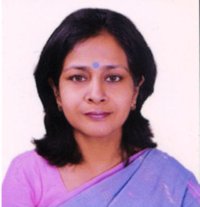
Tanuja Agarwala is a professor in the Management Faculty at University of Delhi. Tanuja’s research focuses on gender, work-life integration, career management, performance and reward management, gender, HRM in organizational transformations, cross-cultural issues, and corporate social and environmental responsibility. She is a member of the Editorial Board of Gender in Management Journal and recently edited a Special Issue on the theme of ‘women in academia’. She is also a member of the Editorial Advisory Board of Equality, Diversity and Inclusion and is currently working on a research study of the academic work environment.
For more information, visit http://www.fms.edu/?q=faculty/faculty_detail/62
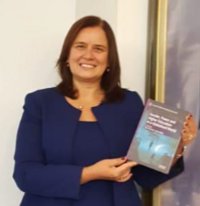
Özlem Atay is a professor of Management at the Faculty of Political Sciences, Ankara University, Ankara, Turkey. She is the Head of Management and Organization Chair in the Department of Management. She specializes in gender and women studies, management and organization, productivity improvement techniques, strategic human resources management, strategic management, energy and quality management. She was a visiting professor at Curtin University Graduate School of Business, Perth, Australia; at Aalborg University College of Business, Aalborg, Denmark, at Valparaiso University College of Business Administration, Valparaiso, USA and at Northern Illinois University College of Business, Management Department, DeKalb, USA.
For more information, visit https://ozlemataysbf.blogspot.com
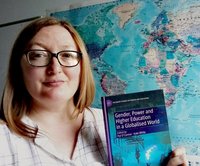
Sarah Barnard is Senior Lecturer in Sociology of Contemporary Work in the School of Business and Economics at Loughborough University (UK) and Co-Director of the WHEM Network. Sarah is an interdisciplinary researcher in equality, diversity and inclusion (EDI), with specific expertise in 1) gender equality in work contexts, particularly higher education and Science, Engineering and Technology professions; 2) technology and media in relation to work and 3) social equality for other minority groups. Sarah’s research is underpinned by passion for social justice and equality.
For more information, visit https://www.lboro.ac.uk/departments/sbe/staff/sarah-barnard/
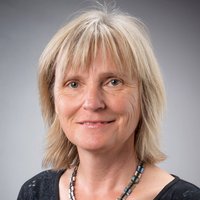
Brigitte Bönisch-Brednich is a professor at Victoria University of Wellington in New Zealand. She is a cultural anthropologist with a special interest in the anthropology of higher education, academic mobility, narrative research and ethnographic methodology. Since moving to New Zealand she has also developed a strong interest in colonisation and the politics of reconciliation. Her work as Head of School and her own mobility experience has influenced her research and writing and continues to be a strong part of her interest in autoethnographic methodologies and narrative analysis. She is co-editor of FABULA, a journal specialised in folk narrative research. She has been trained and received her academic degrees in Germany and has taught in Germany, Switzerland, Austria and New Zealand.
For more information, visit https://people.wgtn.ac.nz/Brigitte.Bonisch-Brednich

Teresa Carvalho is an Associate Professor at the Department of Social, Political and Territorial Sciences, University of Aveiro, is a senior researcher at CIPES (Center for Research in Higher Education Policies) and member of the research unit on Governance, Competitiveness and Public Policy (GOVCOPP). She is also a member of the CIPES board and of the executive board of the Department of Social, Political and Territorial Sciences at the University of Aveiro. She is the director of the PhD program in Public Policies at the University of Aveiro. She is a member of the ESA (European Sociological Association) Executive Committee as RN Council chair. She is member of the Editorial Team of the Journal Professions and Professionalism. She was member, and sometimes coordinator, of several European and National sponsored projects in the fields of New Public Management, Managerialism, the Sociology of Professions and gender studies.
For more information, visit https://orcid.org/0000-0002-3368-3990

Maria de Lourdes Machado-Taylor is a Senior Researcher Associate at the Center for Research on Higher Education Policies (CIPES) and currently works at the Agency for Assessment and Accreditation of Higher Education (A3ES) in Portugal. Her areas of research include Management, Leadership, Strategies, Higher Education Policies and Gender Studies. She has coordinated and contributed to multi-disciplinary and multi-institutional research projects funded namely by the Foundation for Science and Technology (FCT), Gulbenkian Foundation (Portugal), Capes (Brazil) and European Commission. She has received research scholarships from Gulbenkian Foundation and Fulbright (USA). She is the author and co-author of 12 books, editor of three books, author of 33 book chapters and 65 refereed journal articles published in European, Asian and American journals.
For more information, visit https://cipes.pt/user/44/?language=en
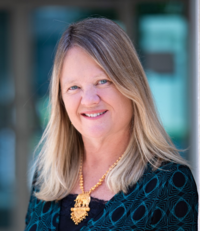
Monica Gallant is an Associate Professor of Accounting at the SP Jain School of Global Management, based in Dubai. Qualified as a Chartered Accountant from Canada with a Master’s degree in Education Technology and a Doctorate in Education, she began her career at Deloitte as a Senior accountant/auditor and then found her passion for teaching as a community college instructor. She enjoys bringing creativity, technology and authentic learning experiences into the classroom and finding ways to actively engage her students. Her research interests include intercultural intelligence, entrepreneurship and women’s issues. She has participated in several research projects relating to gender issues and women’s entrepreneurship. She is a Certified mentor, Certified trainer for Intercultural Intelligence, Certified trainer for Personality Dimensions and Qualified site evaluator and mentor for the Accreditation Council of Business Schools and Programs (ACBSP). She has won a Global Teaching Excellence Award as well as a Research Excellence award.
For more information, visit https://www.spjain.org/faculty/profiles/gallant-monica
Anitra Goriss-Hunter is the Director, Learning and Teaching in the Institute of Education, Arts and Community, Federation University. Her research and teaching focuses on gender and education, inclusion, and pre-service teacher (PST) education. Anitra received the Australian Women’s and Gender Studies Association award for most outstanding PhD thesis. Her current projects include investigating women’s careers in Higher Education; increasing female participation in STEM education; an Information Technology curriculum design case study; and developing inclusive pedagogies for PSTs. Anitra received the Federation University Vice-Chancellor’s Award for Outstanding Contribution to Student Learning 2020.
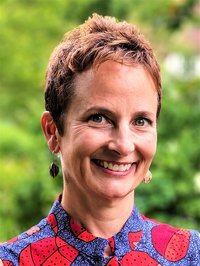
Heather Laube is Professor of Sociology at the University of Michigan-Flint (USA). Her research examines how feminist academics navigate their often-conflicting positions and identities as they strive to maintain their feminist ideals, achieve professional success, and transform the academy. A forthcoming chapter explores the challenges women face as they pursue promotion to full professor. She has also explored how innovative faculty mentoring programs might contribute to institutional change in higher education. Her work has been published in Gender & Society, Women's Studies: An Interdisciplinary Journal, and Research in Social Movements, Conflicts and Change. She is the winner of the 2021 Sociologists for Women in Society Feminist Mentor Award.

Marcela Linková is a researcher at the Institute of Sociology of the Czech Academy of Sciences where she heads the Centre for Gender and Science. Her research focuses on the sociology of gendered organizations, research careers, governance of research and research assessment from a gender perspective. Marcela also examines the material-discursive practices through which gender equality policies and initiatives are adopted and implemented at the European and Czech country levels. Between 2017 and 2021 she served as the chair of the Standing Working Group on Gender in Research and Innovation under the European Research Area and Innovation Committee (ERAC). She is active in developing policy solutions for gender equality in research at the Czech and EU levels. Marcela has been and still is involved in several EU funded projects (e.g. GENDERACTION, GE Academy, Gender-SMART, CASPER, UniSAFE and RESISTIRE). She has served on expert and advisory bodies of the European Commission and in the Czech Republic. She is an alumna of the International Visitor Leadership Programme “Women in STEM”.
For more information, visit https://www.soc.cas.cz/en/lide/marcela-linkova

Anke Lipinsky is a senior researcher at GESIS-Leibniz Institute for the Social Sciences, Team: Center of Excellence Women and Science CEWS. Dr. Anke is a cultural anthropologist by training. Her research focuses on evaluation and analysis of policy styles in the field of gender equality and research, including organizational policies, nation states and the EU. She has extensive expertise in policy mapping & analysis, evaluation and mixed method research.
For more information, visit https://www.gesis.org/en/institute/staff/person/anke.lipinsky
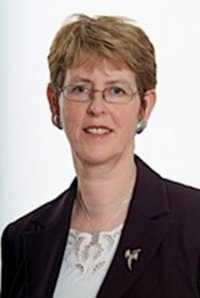
Professor Pat O’Connor is Professor Emeritus of Sociology and Social Policy, University of Limerick (UL) and Visiting full Professor, Geary Institute, University College Dublin. Her core research interest is gender: focusing on leadership, power and institutional resistance in higher education and more broadly on the gendering of organizations, excellence and careers. She was the first female full professor (1997) and faculty dean (2000) in UL and the first female professor of sociology in Ireland (1997). Her 120 publications include eight books, over 80 peer reviewed journal articles and 30 book chapters. She has held visiting professorships at London, Aveiro, Linkoping, Deakin and Melbourne and is currently on the Advisory Boards of TARGET, CHANGE and RESET. Gender, Power and Higher Education in a Globalised World, co-edited with K.White is her most recent book (Palgrave Macmillan 2021)
For more information, visit https://www.ul.ie/research/prof-pat-oconnor or Researchgate Pat O’Connor, UL
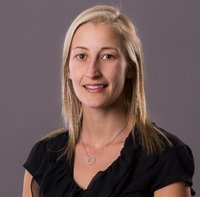
Shan Simmonds is a professor in Curriculum Studies and a member of the Edu-HRight Research Unit (Education and Human Rights in Diversity) at the North-West University, South Africa. She leads the research group “diverse contexts” of the Edu-HRight Research Unit. This group embraces diversity in its most nuanced sense so as to imagine alternative pathways toward transformative and innovative education (see https://education.nwu.ac.za/edu-hright). Shan publishes actively on topics in curriculum studies, higher education, gender and sexuality studies as well as human rights education. Her research leadership positions include Associate-Editor of the journal Transformation in Higher Education, vice-president of the South African Education Research Association, and on the executive committee of the International Association for the Advancement of Curriculum Studies. She is also co-editor of the book A scholarship of doctoral education: On becoming a researcher. (2018, African Sun Media).
For more information, visit https://nwu.academia.edu/ShanSimmonds
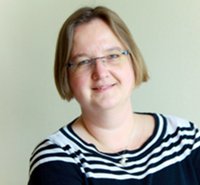
Angela Wroblewski is a senior researcher at the Institute for Advanced Studies in Vienna. She is a trained sociologist and has a background in the field of gender studies in academia including evaluation of equality policies and women only programmes. Her research focuses on gender equality in science and research as well as on evaluation projects with a focus on equality policies in universities and research institutions. In that context Angela is concerned with the development of indicators to measure gender equality. This includes a critical reflection on the validity of available data and indicators and conceptualisation of new indicators. Furthermore, she is interested in the steering function of indicators and monitoring systems in the context of equality policies.
For more information, visit https://www.ihs.ac.at/people/angela-wroblewski/
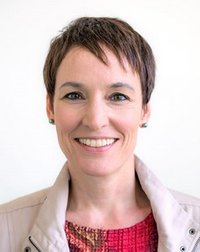
Kathrin Zippel is Einstein Professor of Sociology and Gender Studies at the Freie Universität Berlin. She has published on gender politics in the (academic) workplace, public and social policy, social movements, welfare states, and globalization in the United States and Europe. Her book The Politics of Sexual Harassment in the United States, the European Union and Germany (Cambridge University Press) won several awards. Her research explores gender and global transformations of science and education. In her book, Women in Global Science: Advancing Careers Through International Collaboration (Stanford University Press), she argues that global science is the new frontier for women, providing both opportunities and challenges as gender shapes the dynamics and practices of international research. She also conducts research on the “Diffusion of Ideas on Gender Equity Interventions,” funded by the National Science Foundation ADVANCE program and the Einstein Foundation.
For more information, visit https://www.kathrinzippel.com/ https://www.polsoz.fu-berlin.de/en/soziologie/arbeitsbereiche/gender-studies/index.html
